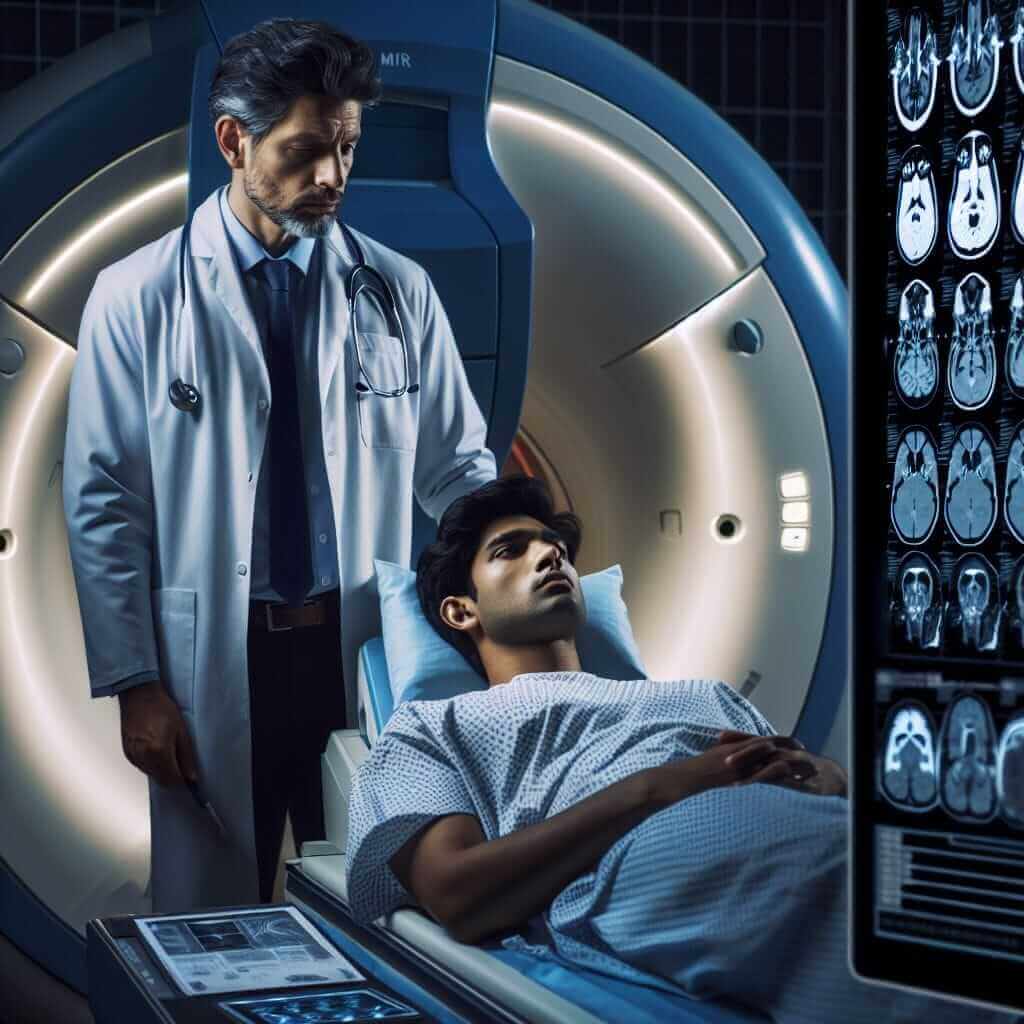The IELTS exam, especially the listening and reading sections, often features health and medical topics. One term you’re likely to encounter is “MRI.” Understanding “MRI” and related vocabulary is crucial for achieving a high IELTS score.
Table Of Contents
Let’s break down this medical jargon and equip you with the knowledge to confidently navigate these sections.
MRI: Meaning and Synonyms
MRI stands for Magnetic Resonance Imaging. It’s a noun referring to a medical imaging technique that uses a magnetic field and radio waves to create detailed images of the organs and tissues in your body.

Here are some synonyms and related terms:
- Scan: A general term for a medical imaging procedure. (e.g., “The doctor ordered a scan to assess the damage.”)
- Imaging: The process of creating visual representations of the inside of the body. (e.g., “Medical imaging has revolutionized diagnostics.”)
- Radiology: The branch of medicine dealing with X-rays and other imaging techniques. (e.g., “The radiology department is where they perform MRIs.”)
MRI in the IELTS Exam
The term “MRI” frequently appears in the IELTS Listening and Reading sections, often within passages or dialogues related to:
- Healthcare discussions: Conversations between doctors and patients.
- Medical research articles: Texts discussing advancements in medical technology.
- Health news reports: Broadcasts covering new discoveries or health concerns.
Using “MRI” in Your IELTS Responses
Here’s how you can effectively use “MRI” and related vocabulary in your IELTS responses:
Listening Section
Example:
You might hear a doctor in a consultation say:
“We need to get a clearer picture of the injury. I’m going to refer you for an MRI scan. This will help us determine the extent of the damage to the ligaments.”
Understanding the context:
The doctor is recommending an MRI to get a detailed view of the injury, highlighting its importance in diagnosis.
Reading Section
Example:
An article about advancements in cancer treatment might state:
“MRI technology has significantly improved the accuracy of tumor detection, enabling earlier intervention and better outcomes for patients.”
Paraphrasing:
You could paraphrase this information as: “The use of magnetic resonance imaging has led to more precise identification of cancerous growths, allowing for timely treatment and increased survival rates.”
Writing Section
Example:
You are asked to write an essay about the benefits of technology in healthcare.
You could write: “One of the most significant advancements in medical technology is the development of MRI. This non-invasive procedure allows doctors to visualize internal structures with remarkable detail, leading to faster and more accurate diagnoses.”
Speaking Section
Example:
During the speaking test, you might be asked about a time you or someone you know experienced a health issue.
You could say: “My grandfather had been experiencing severe headaches. After a series of tests, including an MRI, doctors were able to diagnose him with a brain aneurysm.”
Collocations with “MRI”
Here are some common collocations using “MRI” that will enhance your vocabulary:
- undergo an MRI: “The patient will undergo an MRI to check for abnormalities.”
- MRI results: “The MRI results revealed a slight tear in the cartilage.”
- MRI machine: “The hospital recently acquired a new, state-of-the-art MRI machine.”
- MRI technician: “The MRI technician guided the patient through the procedure.”
Conclusion
Mastering medical vocabulary like “MRI” is essential for achieving success in the IELTS exam. By understanding the meaning, synonyms, and various contexts in which it is used, you can confidently approach different sections of the test. Remember to practice using these terms in your writing and speaking to enhance your fluency and demonstrate a wider range of vocabulary.